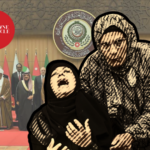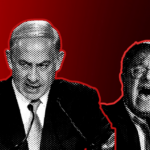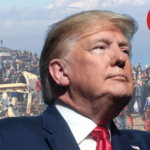Lebanon and Syria: The Politics of Assassination
By RAMZY BAROUD
The assassination of Lebanese politician Antoine Ghanem on September 19 is likely to be used, predictably, to further US and Israeli interests in the region. Most Western and some Arab media have industriously argued that Syria is the greatest beneficiary from the death of Ghanem, a member of the Phalange party responsible for much of Lebanon’s bloodshed during the civil war years between 1975 and 1990. The reasoning provided is that Syria needs to maintain a measure of political control over Lebanon after being pressured to withdraw its troops. This political clout could only be maintained through the purging of anti-Syrian critics in Lebanon, and by ensuring a Lebanese parliament friendly to Syria. And indeed, with the elimination of Ghanem, the anti-Syrian coalition at the fractious Lebanese parliament is now left with an even slimmer majority – 68 MPs in a 128-member assembly.
Case solved.
Or is it?
The Syrian regime may, in fact, be responsible for the murder of six Lebanese political figures, including Ghanem, since the tragic car-bombing of former Lebanese Prime Minister Rafik Hariri in February 2005. However, to understand the situation in Lebanon, one needs to refrain from any simplistic conclusions. This is not an easy task, however, given that media reports pertaining to Lebanon classify every Lebanese political figure as ‘pro’ or ‘anti’ Syrian. Such reporting rests on the idea that the Syrian regime—and only the Syrian regime—has a keen interest in bringing death and chaos to a small but strategically important Lebanon. By the same logic, all of Syria’s allies – Iran, Hizbollah in Lebanon, and the Damascus-based Palestinian groups, including Hamas and various socialist factions – are regularly implicated by the Western media.
Considering the elaborate politics of assassination in Lebanon and the many bloody events that were justified on the basis of such killings – notwithstanding the rationalization of the Israeli invasion of Lebanon and
the massacre of Sabra and Shatila in 1982 – one would assume that media reporters and commentators have learned to become extra cautious before following official American and Israeli lines.
As a country either fully or partially responsible for destabilizing Lebanon, Syria may be a probable culprit in Ghanem’s death. This is a view underscored daily by both those who are either genuinely seeking to liberate Lebanon from foreign influence and those who wish to dominate the Lebanese political landscape. But self-interested as it may be, Syria is also known for being politically savvy and judicious. It has shown this by serving as a valuable ally in the US ‘war on terror’ since the terrorist attacks of September 11, 2001; it willingly collaborated in securing its borders with Iraq, and even went as far as torturing America’s prisoners in the CIA’s infamous ‘extraordinary renditions.’
Why would a country that was willing to sink so low now provide pretexts for hostilities by carrying out brazen assassinations against America’s allies in Lebanon? Each such assassination only helps cement the anti-Syrian cries stemming from Washington, Tel Aviv and Beirut. The Syrian regime’s past is indisputably cruel, but inanity has hardly been one of its features.
Could it be plausible that Syria is innocent of the most recent bloodletting in Lebanon? It is mind-boggling to imagine a country which has managed to survive amidst the incalculable hostility stemming from across all its borders being so foolish as to carry out such ludicrous crimes with such harmful consequences at such a critical time. Despite Lebanon’s value in the Middle East’s ongoing Cold War, Syria, like any other regime under threat, should be less concerned about dominating a smaller neighbour than in securing its own survival.
So who are the other possible culprits? Considering Lebanon’s bloodstained past and the numerous players, sects and factions operating within its borders, the list seems endless. However, taking into account the nature of the assassinations (all targeting ‘anti-Syrian’ figures) and the official line championed by the US and Israel, one can reasonably include those who wish to drive Syria into a military confrontation, or perhaps a humiliating political settlement with Israel (which Damascus has refused since its talks with Tel Aviv broke off in 2000), including a compromise on the occupied ‘Golan Heights’. It would be worth noting here the neoconservative doctrine prepared by Richard Perle in 1996 for then Prime Minister Benjamin Netanyahu. Tellingly entitled ‘A Clean Break: Securing the Realm,’ it outlines plans to subdue Syria through the Lebanese route. Could this help to explain why the U.S. and Israeli governments are no longer pursuing previously concerted efforts and publicly declared objectives and instead blaming Israel’s military setback in Lebanon in 2006 largely on Syria’s – and Iran’s – backing of Hizbollah?
It might also be helpful for those who insist that Syria alone is capable of inflicting such mayhem in Lebanon to remember that Netanyahu recently and unsurprisingly admitted that the ‘mysterious’ air strike inside Syrian territories on September 6 – clearly an attempt to coerce Syria into a military confrontation – was indeed deliberate. US diplomats scrambled to justify the palpable act of war on the mediocre claim that the Syrian target bombed by Israeli US-supplied F15 jets ‘may have had links to North Korean nuclear arms,’ according to the British Guardian. Mediocre or not, a case against Syria that involves the US, Israel and their allies in the region is being diligently weaved, and one should not be surprised if the next military confrontation against Hizbollah will widen to include Syrian territories as well.
As media and official efforts have conveniently overlooked all other possible culprits behind the determined efforts to destabilise Lebanon, the region seems headed for another military confrontation and Lebanon for a possible civil war. This will most likely be blamed on Syria, Iran, Hizbollah and Palestinian factions, and Israel will once again be presented as acting in self-defence and the US as defending the cause of Israel, democracy and human rights.
-Ramzy Baroud (ramzybaroud.net) is an author and editor of PalestineChronicle.com. His work has been published in many newspapers and journals worldwide. His latest book is The Second Palestinian Intifada: A Chronicle of a People’s Struggle (Pluto Press, London).










































0 Comments